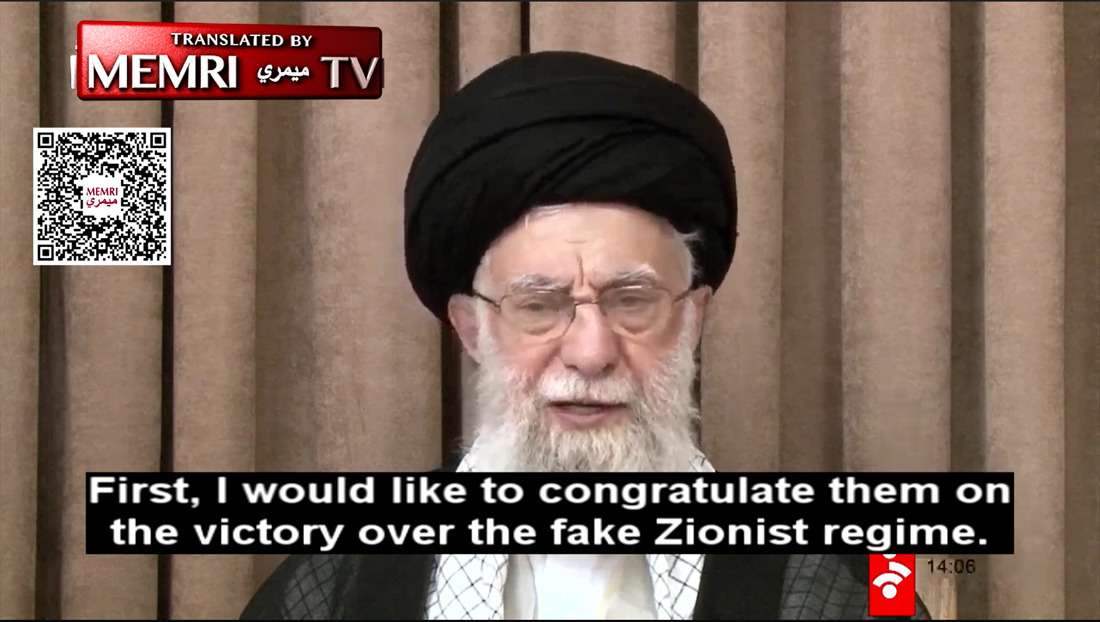
According to an adage, the history of any war is written by the victor. This is because the loser is either dead or too wounded to have the energy to write or, in some cases, hopeful of turning the victor into friend.
But for that adage to apply, a war must end with an acknowledged winner. And that poses another problem: no victor could self-anoint and wear the garland unless the adversary acknowledges defeat.
This is the conundrum that Israelis have experienced ever since they fought to put their tiny country on the map.
This time it was, again, the United States to remove the cup of victory from their lips.
The do-gooders who imposed the fishtail outcome forgot that the duty of a war is to change an unstable status quo and replace it by a new one acceptable to protagonists, by clearly designating a victor and a vanquished. They say war is the continuation of politics by other means. In this case, however, the do-gooders turned war into a snake and rope version of diplomacy.
Some of the outside do-gooders benefited from their intervention by winning elections or even being granted the rather comical Nobel Peace Prize.
Since 1947, scores of new nations have appeared on the map, and dozens of wars have been won and lost, creating new status quos and ensuring long periods of peace and stability. In all those cases, war -- regarded by Aristotle as the noblest of human endeavors -- was allowed to determine who won and who lost. The function of war is to cut the Gordian knot with a blow and allow things to resume their movement.
The do-gooders and peddlers of ceasefire turn war into a knife that remains in the wound, to be turned again and again.
In other words, in some cases, ceasefire could be an enemy of peace.
This may happen again with the ceasefire ordered by US President Donald Trump to Israel and Iran, thus putting a temporary halt to a war that started almost half a century ago, when Ayatollah Ruhollah Khomeini, founder of the Islamic Republic, declared "the elimination of the Zionist entity" as his number-one priority.
By any military standards, Israel scored a major win in the 12-day war that Trump halted. It gained full control of Iranian skies within 48 hours, a fact that later enabled US B-2 bombers to destroy Iran's key nuclear installations within a few hours, without facing any resistance.
The Israelis also decapitated Iran's military hierarchy, dominated by the Islamic Revolutionary Guard Corps, and wiped out the headquarters of the Quds Force, which had orchestrated Iran's operations in Iraq, Lebanon, Syria, Gaza and Yemen for decades.
According to Iranian estimates, Israel destroyed or seriously damaged the Islamic Republic's military and nuclear sites by attacking over 600 targets, inflicting damage estimated at over $1.8 trillion. In a classical cakewalk version of a military conduct, Israelis were able to attack targets in 20 of Iran's 31 provinces without losing a single warplane or pilot.
According to Fatemeh Mohajerani, spokeswoman for Iran's President Massoud Pezeshkian, Israeli attacks claimed over 600 lives, including 54 women and children. Twenty-three of those killed were one- or two-star generals, while a further 300 were military personnel, including NCOs. Iranian nuclear scientists and managers killed numbered 46. Iranian wounded numbered 4,746. On the Israeli side, the number of killed in Iranian attacks is put at over 30, of which only one was an 18-year-old conscript. Israelis wounded numbered 3,238.
Normally, that should cast Israel as the clear winner in the 12-day war. And, yet, as in previous cases described above, Israel is once again not only left with un-cashable chips but described as the loser by Iran and, more surprisingly, by some so-called experts in the US and Europe.
To complicate matters further, Trump has cast himself as the victor who ended the war by "wiping out Iran's nuclear program forever" and imposing a ceasefire within 24 hours of the US airstrikes.
Iran has tried to outbid Trump by advancing its own claim of victory. "We broke the horns of the American bull and rubbed its nose in dust," says Muhamad-Reza Aref, a presidential assistant in Tehran.
Tehran's propaganda makes much of the fact that the war lasted 12 days. "Arabs led by Egypt collapsed after just six days of war against the Zionists in 1967," says an editorial in the IRGC's Tasnim news site. "The Islamic Republic, however, resisted the attack by Zionists and their American backer for 12 days, and forced them to beg for a ceasefire."
The official media in Tehran quote The New York Times, CNN and other American and European networks casting doubt on Trump's claim of victory, let alone Israel's.
A range of Western dignitaries are paraded in the media to back Iran's victory claim, among them John Mearsheimer, David Attenborough, Noam Chomsky, and Jeffrey Sachs.
Iran's claim of victory has encouraged some Khomeinist ideologues to urge preparation for another round of war.
"We defeated both the Great Satan and its Zionist agent," says one-star general Ibrahim Jabbari. "But we should not let things end there. We should keep our boot on Netanyahu's neck until he is suffocated."
Once again in Middle Eastern history, a hasty ceasefire motivated by short-term political calculations is set to prolong a decades-long war, each phase of which is deadlier than the previous one.
Amir Taheri was the executive editor-in-chief of the daily Kayhan in Iran from 1972 to 1979. He has worked at or written for innumerable publications, published eleven books, and has been a columnist for Asharq Al-Awsat since 1987.
Gatestone Institute would like to thank the author for his kind permission to reprint this article in slightly different form from Asharq Al-Awsat. He graciously serves as Chairman of Gatestone Europe.


